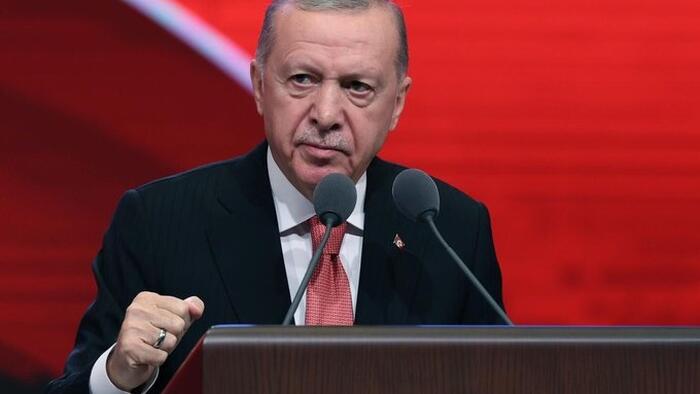The geopolitical landscape in the Middle East has been historically complex, and recent developments indicate that Turkish President Recep Tayyip Erdoğan is recalibrating his strategy, particularly regarding Syria. On November 24, Erdoğan engaged in discussions with Russian President Vladimir Putin, aiming to strengthen cooperation between Turkey and Russia while also addressing tensions with Syria’s President Bashar al-Assad. This relationship has been marked by Turkey’s involvement in attempts to destabilize Assad’s regime and an intricate balancing act to manage Turkish interests in the region. Amid these dynamics, Erdoğan has purportedly led China to believe that reconciliation was possible between Turkey and Assad, indicating a front of unified opposition against perceived Western aggression, particularly from Israel and the United States in the Middle East.
Amidst the backdrop of escalating violence in Syria, Erdoğan’s support for Islamist paramilitary groups has been a focal point. Just as Turkey seemed to signal a softer stance, it launched a significant military offensive in northwestern Syria, with reports of fierce fighting and territorial advancements by Turkish-backed militants, particularly the Hayat Tahrir al-Sham (HTS). The recent offensive, which is framed by Erdoğan as a limited operation, coincides suspiciously with a ceasefire in Lebanon, potentially aligning with broader strategic objectives shared by Israel and the US to weaken Assad’s government. Notably, Turkish Foreign Minister Hakan Fidan has publicly denied Ankara’s involvement in the offensive, yet this assertion contradicts widespread evidence indicating ongoing support for HTS and other jihadist factions.
The evolving situation has raised alarms, especially as Ankara’s military maneuvers appear to serve the broader aims of Western allies seeking to undermine Iranian influence in the region. Intelligence reports suggest that Turkish forces are openly coordinating with Ukrainian and Israeli intelligence to direct operations against Syrian government positions, tapping into Ukrainian special forces’ expertise for drone warfare. This propaganda war paints Erdoğan not just as a regional actor but as a crucial player in a tactical alliance that could redefine the power structures in Syria and beyond. The alleged collusion raises critical questions regarding Erdoğan’s true commitments, given his rhetoric denouncing Israel and appearing to support the Palestinian cause, while actions indicate a complicity that may ultimately bolster Israel’s strategic interests.
The balance of power in the Syrian conflict is further complicated by the interactions between Turkey, Russia, and the US. Historically, Turkey has used its relationship with the US as a counterweight against Russian dominance in the region, yet recent sanctions from Washington have strained Ankara’s ability to navigate these alliances effectively. Turkey’s reliance on Russian energy supplies, coupled with lucrative tourism and economic contracts, serves to entrench its reliance on Moscow, despite Erdoğan’s aggressive military strategies in Syria. Turkish domestic pressures, including hosting millions of Syrian refugees, complicate Erdoğan’s policies further as he attempts to justify military actions aimed at securing more territory in Syria and managing internal political dissatisfactions regarding refugee influxes.
Erdoğan’s ambitions, seen as neo-Ottoman, seek to extend Turkey’s influence across former imperial domains while attracting Western support to bolster his regime against external challenges. The complexities of Erdoğan’s foreign policy are underscored by concurrent overtures to China and pledges for cooperation against terrorism. However, his latest military maneuvers in Syria might act as a double-edged sword, potentially alienating crucial partners such as Russia and China, both of whom have vested interests in maintaining stability in the region. By directly supporting extremist factions, Erdoğan risks undermining China’s investments in Turkey and jeopardizing Russia’s strategic objectives in Syria—an unsteady gamble that could have wider repercussions for regional stability.
Lastly, Erdoğan’s strategies appear increasingly shortsighted as he maneuvers between alliances and confrontations. The responses from Iran and Russia to the recent offensive could escalate tensions further, leading to retaliation against Turkish-backed forces in Syria. The notion that a stable alliance with the US and its proxies can yield long-term benefits seems precarious, especially given the volatility of US foreign policy. With growing challenges from Iranian and Syrian military responses, Turkey’s geopolitical positioning could relegate it to a role of diminished influence rather than the preferred leadership Erdoğan envisions. The delicate fabric of alliances, coupled with Erdoğan’s increasing military aggressions, presents a critical juncture that could reshape not only Turkey’s role in Syria but the broader regional order as it grapples with internal and external pressures.

